
Freshfel Headlines – number 2 / 2017, covering news from February and March of 2017

Freshfel Europe’s Where is the Fruit? report shows too much misleading consumer information
The image and name of fresh fruit is still often being misused by other food sectors. This is the main finding of the new edition of Freshfel’s ‘Where is the Fruit?’ study. There are still too many products that are displaying fruits prominently on their packaging, despite little to no actual fruit content, confirming the main findings of a previous Freshfel’s study in 2010.
Out of the 188 products investigated from 13 EU Member States (covering 80% of the EU population), only 20% had a fruit content of 50% or more. On the other hand 7% of products contained no fruit at all while 34% contained less than 10% of fruit and another 34% contained between 11% and 50% of fruit. Some labels also are not indicating any reference to fruit at all. These findings show that business practices of food operators are inconsistent with the objectives of the EU Regulation on food information to consumers, as well as the EU Regulation on nutrition and health claims.
The full press release and report can be found here on the Freshfel’s website.

Freshfel Europe started with COPA-COGECA a social media initiative on #FruitVeg4You to raise awareness and promote fruit and vegetables
Freshfel Europe and Copa-Cogeca, representing the farmers and farmer organisations in Europe, have started a joint social media campaign to raise awareness and to promote the consumption of fruits and vegetables. The social media campaign shares content from members, as well as created content, facts and figures about fruits and vegetables and interesting articles. The hashtag used for the campaign is #FruitVeg4You.

Freshfel Europe meets Cabinet Hogan with other agri-trade colleagues to exchange on the future CAP
On Thursday 30 March 2017, Freshfel Europe was part of a delegation of CELCAA, the European Association representing trade in agri-food commodities in the EU to meet the several staff members of the Cabinet of Commissioner Hogan. The objective of the meeting was to exchange on the modernization and simplification of the CAP and future trends for the CAP beyond 2020.
Representing the European fresh fruit and vegetables sector, Freshfel Europe highlighted the need to consolidate the existing CMO instruments for the fruit and vegetables sector, while granting them more stability and legal certainty to secure confidence. The future CAP should maintain its market orientation, providing tools to prevent and manage crisis, e.g. through safety net or measures to cope with exceptional circumstances. It was reminded that fruit and vegetables markets remain volatile as climatic conditions might affect both supply and demand. Providing tools to cope with these features but also improving instrument for market outlook and transparency are highly relevant. Besides, it was also reminded on the benefit of strengthening quality and promotion policy, the need to mitigate climate change impact with a focus on sustainability, stimulating research and innovation and assisting the sector to address SPS hurdles that limit exports opportunities are some of the other priorities that should be taken into account in the future CAP from a fruit and vegetable perspective. Finally, it was also stressed that CAP instruments should be developed in full coherence with other European policies and instruments such as those under the leadership of DG SANTE, ENVI, COMP and TRADE.
The Cabinet staff welcomed this opportunity of an in-depth exchange and took note of all the points provided the CELCAA representatives. In regard to the timeline of the year to come for the simplification and modernization of the CAP, it was reminded that the public consultation will be closed on 2 May 2017. Freshfel Europe will submit its position paper during the month of April. On 7 July 2017, a conference will take place to share with stakeholders the outcome of the public consultation. In November 2017, a Communication will be issued build upon the findings of the public consultation, combined with the Impact Assessment carried out within DG AGRI.

Freshfel Europe calls for new tools to improve market access conditions for f&v to third countries
Freshfel attended, on 29th of March 2017, the latest meeting of the SPS Market Access Working Group, a forum of exchange among the SPS Unit of DG Trade and other Commission services, the representatives of the member states and the European agricultural and agrifood sector. Freshfel is actively involved in this committee to represent the interest of the European fruit and vegetables sector.
At the last meeting, a comprehensive overview of the current market access status in priority countries such as Mexico, Japan, Columbia and Argentina was provided and discussed. It was also the opportunity for Freshfel to further elaborate in a new presentation to the audience on views already expressed at previous SPS MAWG’s throughout 2016 on the benefit of setting up an SPS export database. This tool would give clarity about currently existing or pending protocols for fresh produce export to third countries. It would improve transparency, facilitate follow-up procedures and create a common knowledge basis for potential common actions. It would also and importantly assist the negotiations of FTA with due awareness of access conditions/restrictions and avoid unfair requirements when climatic and productions conditions are similar. As a first response to the Freshfel Europe’s call, the Commission had already been introducing a chart-system for priority countries with the status quo of the market access applications, allowing an overview on what is pending. Freshfel Europe reminded in the meeting that this step is welcomed, but further actions need to be taken to develop an efficient and comprehensive tool.
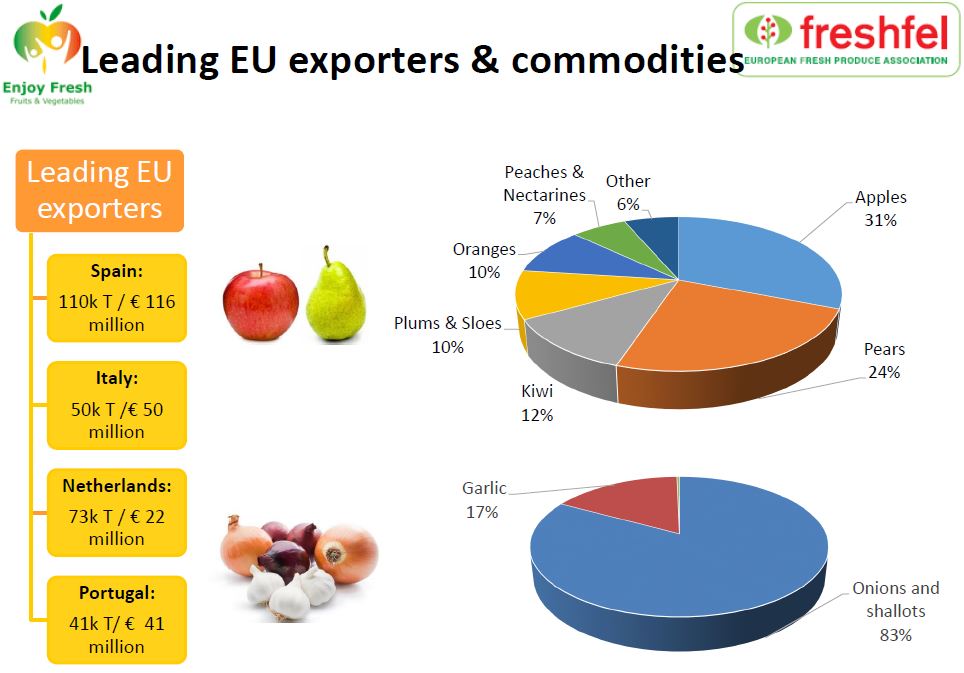
Freshfel Europe highlights opportunities for fresh fruit and vegetables in EU-Mercosur negotiations
Freshfel Europe had the opportunity – together with colleagues of the wine, dairy, meat and cereals sectors – , to exchange perspectives of the European fruit and vegetable sector for the upcoming negotiations with the Mercosur countries. This was done in a meeting with trade and agricultural attachés of the member states in an event coordinated under the leadership of CELCAA, the European Liaison Committee for the Agricultural food trade. The fruit and vegetable presentation was done by Freshfel trade policy advisor Nelli Hajdu.
Total EU fresh produce exports to Mercosur countries amounted in 2016 to 278.000 T, of which 262.000 T have been destined to Brazil. Brazil have been one of the fast growing alternative for the sector in the aftermath of the Russian Embargo. However a number of administrative and lengthy market access procedures, as well as recent economic turndown hindered the potential further growth to capture the full potential of the Mercosur market as a whole. With the perspective of the Mercosur deal, harmonized tariffs and reduction schedule for market access to the 4 countries and application procedures with fixed timings on priority products for SPS issues , would be the priorities to stimulate market access growth. The presentation also reviewed the Mercosur exports to the EU, representing today around 1 Mio T, underlining therefore the existing trade deficit. On the same day, Freshfel together with other colleagues of the agri-food sector, had the opportunity, to meet and exchange with EC Commission DG Trade Mercosur chief negotiator Sandra Gallina.

Freshfel Europe takes leadership in coordinating the positions on plant health requirements
As the debate is on-going in regard to the revision of the annexes of Council Directive 2000/29/EC and the implementing acts of the new plant health Regulation (EU) 2016/2031, Freshfel is taking the lead to approximate positions within the European fruit and vegetables supply chain, and secure a better mutual understanding of views from a production and trade perspective, while reconciling different perception between northern and southern EU perspective. The Freshfel work is guided by key principles:
- the European production is of utmost importance for the market supply and therefore needs to be adequately protected from the threat and potential negative consequences of the introduction of new pests
- the European trade both intra EU and international, whenever safe and pest/disease free, needs to be secured and guaranteed without any unnecessary burden that would endanger freedom of trade.
This initiative is undertaken under the supervision of the Freshfel’s Board. In March, a first compromise position was elaborated covering some of the key issues under (emotional) debate in recent months, including topics relating to the revision of the annexes of directive 2000/29 (citrus for processing, viability test, soft transition of the FCM reporting,…), on the new plant health legislation (functioning of the list of high risk products and scope of the plant health certificates) as well as other aspects such as the Europhyt reporting system, mutual trust in plant health controls across Europe, the consequence of FTA duty concessions on plant health, the industry endeavours of plant health compliance and the debate on (lack of) reciprocity. These topics will remain on the Freshfel agenda in the frame of Freshfel food quality WG.
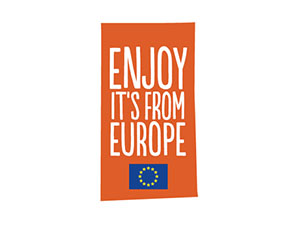
Annual Work programme 2018 for promotion and information of agricultural products: priorities of Freshfel Europe
Freshfel Europe and Europatat united their voices to share their perspectives and priorities in regards to the European Commission 2018 Annual Work Programme on information provisions and promotion measures for agricultural products. In a joint position paper, Freshfel Europe and Europatat are calling the European Commission for a simplification of the format identifying the priorities for the promotion and information programme eligible for the 2018 call.
Currently 11 different budget lines are provided, leading to complexity for operators in the management of the priorities given the fragmentation of efforts to present programmes. The current system is also lacking efficiency, as not always the best programmes are retained given the prolifertation of budget lines. The two sectors are also calling for a better balance of budget between the single and third country markets. The position also address other issues such as the on-going consequences of the Russian embargoes, the procurement measures under the Commission responsibilities,…. The EU information and promotion policy is highly relevant for the sector to reverse the negative consumption trends experienced since the turn of the century given changing lifestyle and increased competition of the agrifood sector with significantly higher marketing budget.

Freshfel Europe welcomes the prolongation of the measures compensating the sector on-going consequences for the Russian embargo
As the Commission is discussing with Member States the prolongation of the exceptional measures of Regulation 2016/921 to compensate the sector of the far reaching implications for the sector of the Russian embargo, Freshfel Europe shared with the European Commission a position paper with a state of play of the measure so far.
Freshfel Europe welcomes the extension for another year of the measures, as several products remained affected and exports continued to be under pressure as witnessed by the 2016 export drop by ca 10%. Freshfel Europe considers that on-going conjectural measures might assist to better balance market as of July 2017 but the extended measures would need to be open for both permanent and non-permanent crops. Structural measures might need to be further promoted as for some cases it would be a more efficient and cost effective measures. Freshfel also calls to take more attention on the options available between free distribution and other destinations. Other aspects need to be considered for a soft functioning of the system such as the cost disparity throughout the seasons. Besides the need to provide at EU level an extra attention on promotion measures for products most affected by the embargo is also highlighted. While continuing the diversification of export markets, Freshfel still expects that efforts will not be discontinued for a prompt reopening of the Russian market.

Freshfel Europe calls for further simplification of marketing standards for fruit and vegetables
As the European Commission is embarking in a discussion to adjust marketing standards for fruit and vegetables, Freshfel released a detailed position paper with its own priorities. The Freshfel position welcomes the upcoming alignment of the EU marketing standards with those of the UNECE. Several years elapsed since the last alignment took place. Besides, Freshfel Europe urges the Commission and Member States to seize this opportunity to adjust the several other provisions of the marketing standards and update them to cope with the latest business evolution. A particular focus should be given for on-line sales, for the simplification of the invoice specifications and for a better alignment of rules between the specific marketing standards provisions and those of the European regulation on food information to consumers. Freshfel Europe will continue to provide its professional assistance for this technical debate which could lead to a simplification of the practice without compromising with the basic quality principles or the information that need to be provided to consumers.

Freshfel Europe delegates takes part of the Civil Dialogue Group on fruit and vegetables
Several delegates of Freshfel Europe participated to the latest civil dialogue group on fruit and vegetables which met in Brussels on 16 February 2017. This civil dialogue group is chaired by Freshfel member, Mr Jose Antonio Garcia Fernandez (Director of Ailimpo). The meeting reviewed a wide range of issues including for the CAP different topics such as the simplification of regulation 543/2011, the omnibus regulation , the evolution of the provisions on marketing standards , the Arcadia report on Interbranch Organizations and the latest developments on the school fruit and vegetables schemes. The Group also reviewed other trade related matters including the market trends and agricultural outlook for 2016 -2025, the report on cumulative impact assessment of trade deals, the export protocols for apples and pears to the USA, the horizontal rules for TRQ management and the exceptional measures under Regulation 2016/921 to compensate the Russian embargo.
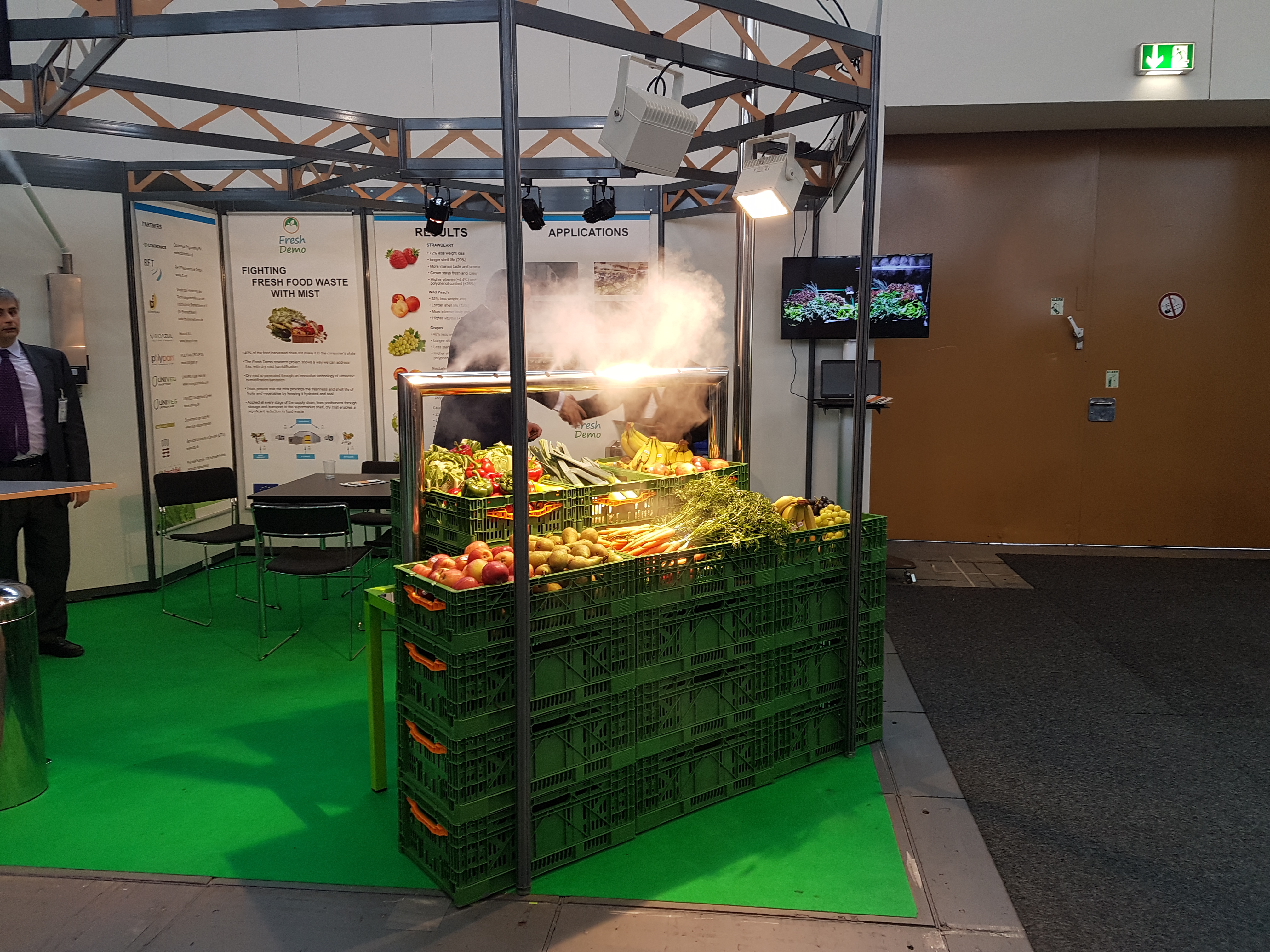
FRESH-DEMO project finalized with an evaluation of its benefit for the fresh produce sector
Since March 2015, Freshel Europe has been involved in the FRESH-DEMO project, financed under the Horizon 2020 EU research and innovation policy. The FRESH-DEMO project aimed to combine an ultrasonic humidification technology with natural acidifiers to preserve quality and freshness of fruits and vegetables along the entire post-harvest supply chain and contribute to food waste reduction
The project was concluded on 28 February 2017. A wrap up final meeting taking place in Berlin on 7 February 2017 to evaluate the final results of the research and discuss the business plan and future exploitation of the project results. Besides and taking the benefit of Fruitlogistica trade fair the humidification technology was displayed on a shared stand with Freshfel Europe. A representation of the project achievements was also shared with Fruitlogistica visitors during the Freshfel trade meeting and a presentation in the Innovation technology forum of the Fair.
FRESH-DEMO project was an opportunity to enhance technology preventing food waste in the supply chain, with technology to be used in storage, transport and retail level. Via humidification, the products have prolonged shelf lives, look more attractive and maintain among others higher vitamin C levels. The humidification process can be complemented by adding a natural acidifier to diminish the hardness of the water on farm level. More specific information can be found via the FRESH-DEMO website. Information on the involvement of Freshfel in Horizon 2020 projects can be found here on the Freshfel website.
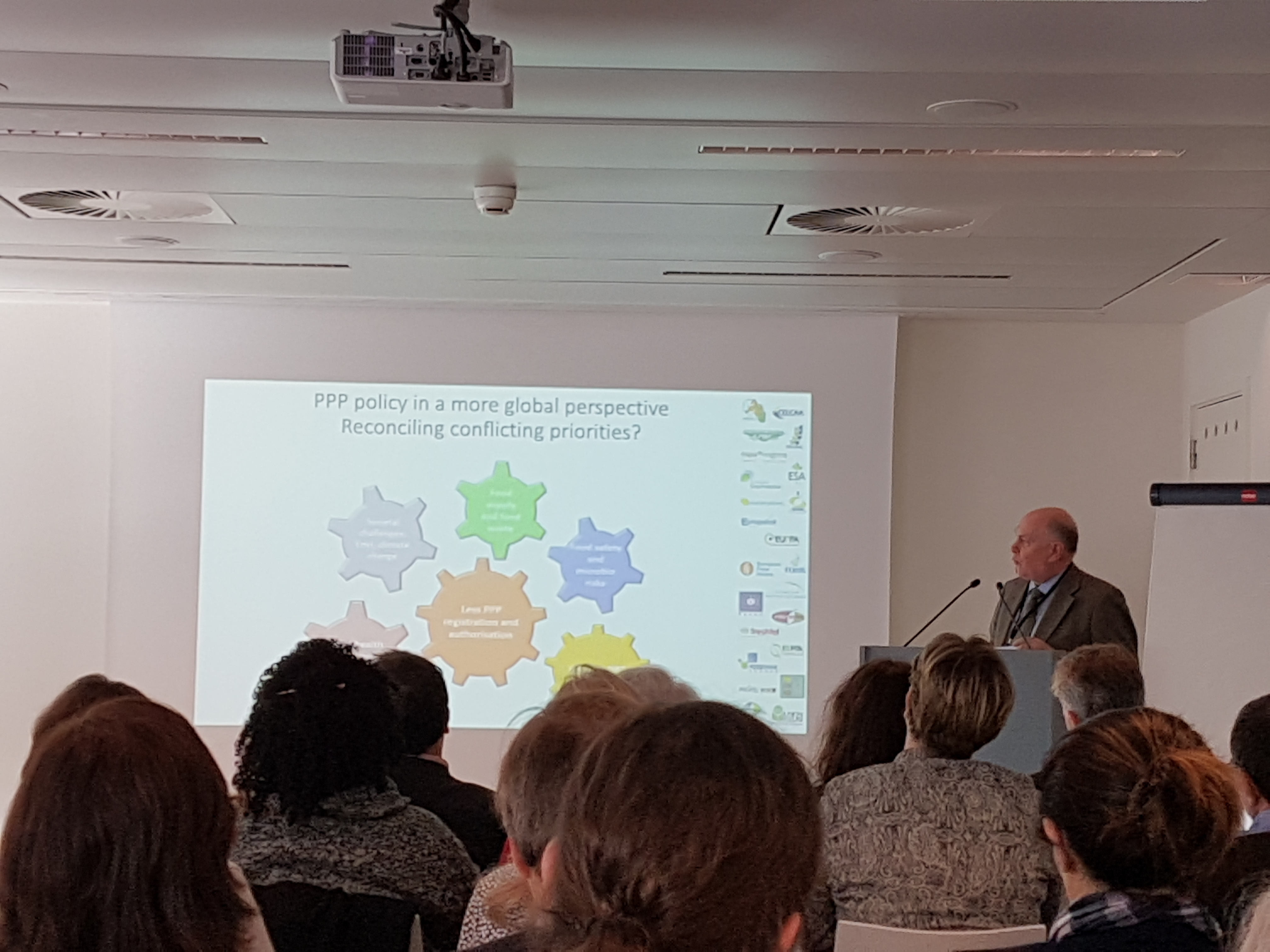
Agri-Food Chain calls to address issues of minor uses and specialty crops
Freshfel Europe , Profel and Copa & Cogeca are among the leading Brussels based association calling for efficient solutions to be brought to address minor use and specialty crops. A position paper was recently finalized and endorsed by 22 associations of the Agri-Food chain Round Table on plant protection. The paper calls for urgent solutions to be introduced either based on the proper functioning of the mutual recognition scheme of Regulation 1107/2009 or through the introduction of a single zone concept through the REFIT process of Regulation 1107/2009. The current lack of tools for protecting the crops are threatening the competitiveness of the EU production, generate distortion of competition among growers and failed to provide adequate tools to protect crops against plant diseases or threats
The Minor Uses Coordination Facility (MUCF) recently hold a meeting in Brussels. of its commodity and horizontal expert groups from the Member States. This was the opportunity to present to the Commission services and Member States the call of the Agri-Food Chain Round Table for Plant Protection for new perspectives on minor uses and specialty crops. Based on a presentation coordinated by Freshfel Europe, Luc Peeters (Copa & Cogeca) was the spokesman and messenger on behalf of the agri-food sectors.
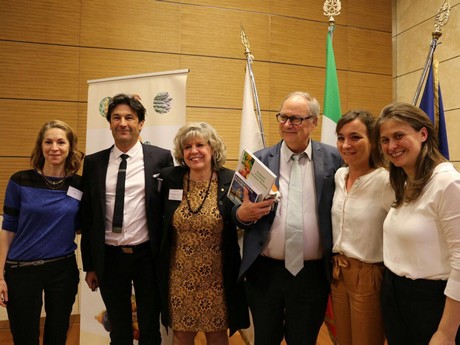
Freshfel Europe attending annual event of AREFLH
Freshfel Europe is closely collaborating with Areflh on a number of dossier. End of March, Areflh celebrated its 15 years of existence during its AGM in Bologna on 24 March 2017. On this occasion, apart from the actual statutory AGM, a conference was on the programme with the objective to review the CAP halfway the latest reform and the outlook of CAP post-2020. High-level speakers were featured during the conference such as Vice Chair of COMAGRI in the European Parliament, Paulo de Castro, Raimondo Serra from DG AGRI, Leonardo di Gioia, coordinator of the Agriculture Commission from the Conference of Italian regions, and Felice Assenza for the Italian ministry of agricultural, food, and forestry policy. All speakers discussed the issues at stake, such as risk management tools, greening, simplification, the single CMO and reinforcement of the Producer Organisations, and the importance of research and innovation for the agricultural sector. The association and its members also expressed their gratitude and acknowledgement to retiring secretary-general Jacques Dasque, and welcomed Pauline Panegos as its new secretary-general.
